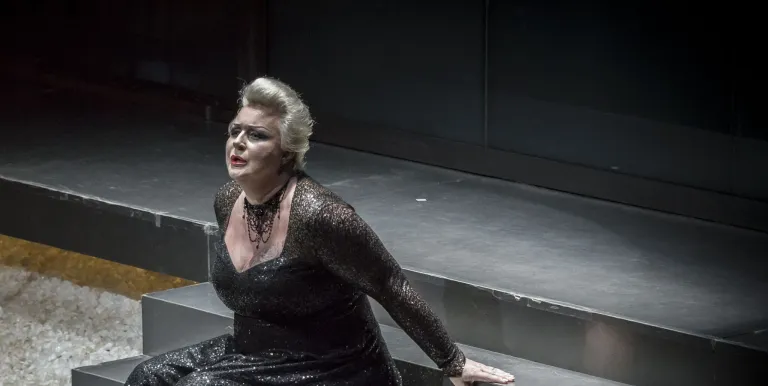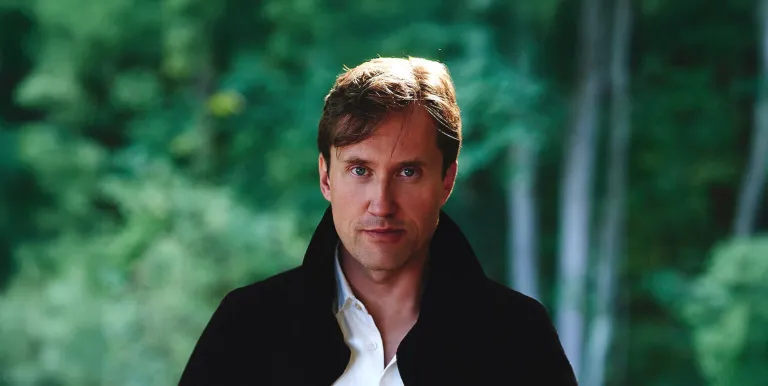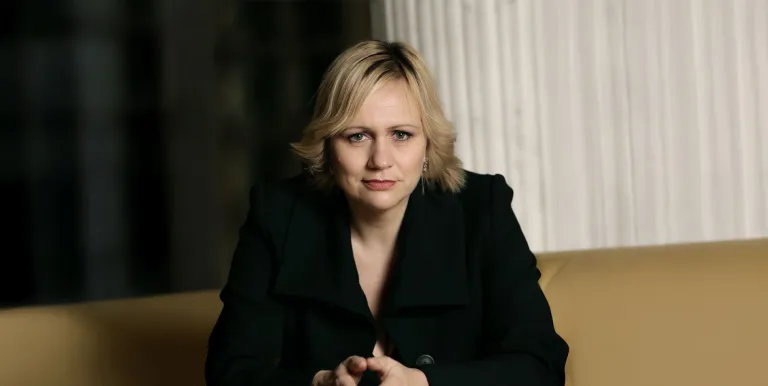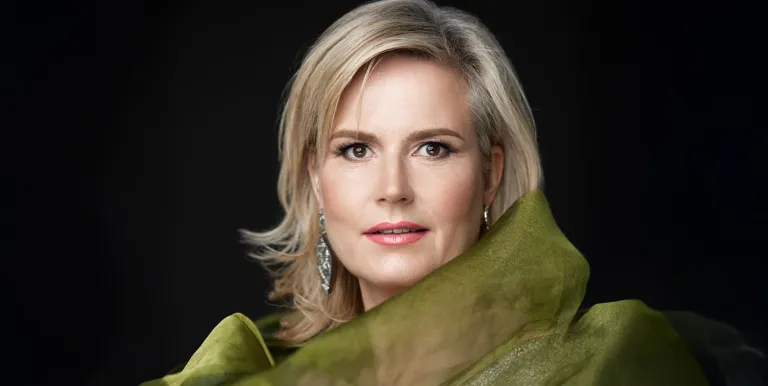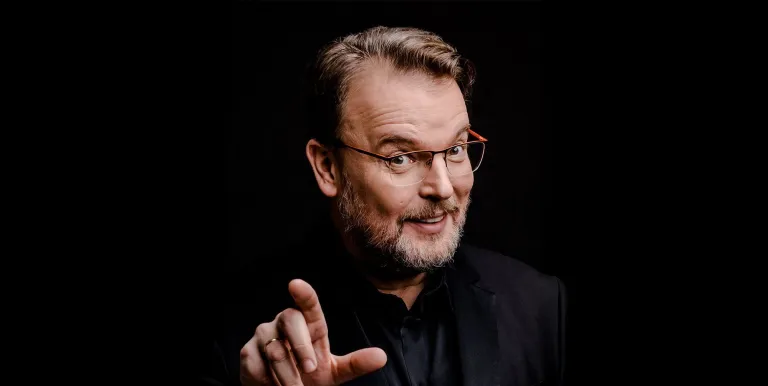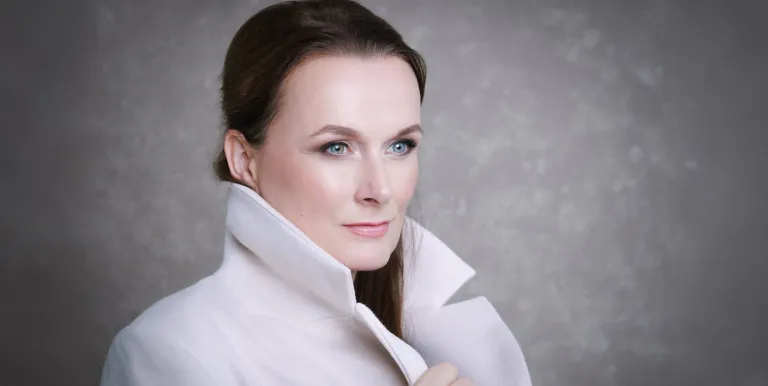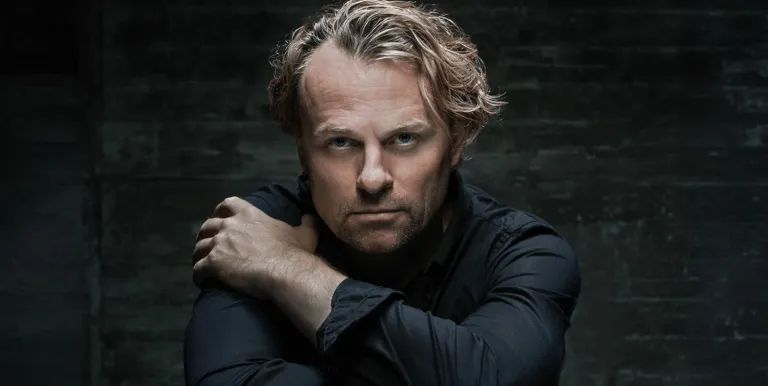Two intervals
Artistic director and conductor:
Performers:
Featuring:
Creators:
Wagner
Götterdämmerung – A music drama in three acts (German-language performance, with projected surtitles in Hungarian)
Broken into pieces, the world ash tree awaits the coming global conflagration, and the threads of fate become hopelessly tangled. Intrigue has led Brünnhilde into the arms of another man and Siegfried into those of another woman. To this end, Siegfried is given a drink that brings forgetfulness. Betrayed and thirsting for revenge, Brünnhilde only understands what has happened when Siegfried, gradually recovering his memory, is mortally wounded by Hagen's spear. Brünnhilde throws the young hero's lifeless body into the first flames of the fire that is to consume the world, and casts herself into the inferno. The realm of gods and men is destroyed. The Rhine rises from its bed, and the accursed ring returns to its original place..
Daniel Brenna is in all certainty the youngest Siegfried of our time. He already appeared at Müpa Budapest early in his career in one of the title roles in Schönberg's Moses und Aron, and later also excelled in the Zürich Opera's production of the same work. He gained world renown very quickly, making his Metropolitan Opera début as early as the autumn of 2015, and is returning there in 2016. In this same year, only a few weeks before the Budapest Wagner Days, he will be performing as Wagner's fearless young hero in the Washington National Opera's production directed by Francesca Zambello.
Rúni Brattaberg, who impressed the Müpa Budapest audience in 2013 in Richard Strauss's opera Die schweigsame Frau, was born in true Wagner country: close to the original home of the Edda in the Faroe Islands, which constituted one of the sources for the libretto to the tetralogy. The splendid bass portrayed the role of Hagen at the Metropolitan Opera, where he later also appeared as Titurel in Parsifal. In addition, he has sung at La Monnaie opera house in Brussels, at the Lausanne Opera House, and at the Bastille Opera in Paris.
Péter Kálmán is one of Hungary's internationally renowned opera singers. He spent a number of years with the Zürich Opera's world-famous company, and appeared at both the Salzburg Easter Festival and the summer Salzburg Festival. He has worked with such renowned conductors as Valery Gergiev, Marc Minkowski, Nikolaus Harnoncourt and Franz Welser-Möst. Recommended to join a recording cast by Cecilia Bartoli, he thus also partnered with Juan Diego Flórez and Ildebrando D'Arcangelo.
Iréne Theorin made her début as Brünnhilde in Copenhagen, and has performed the role for audiences in Cologne, London, Beijing, Berlin, Dresden, as well as the Budapest Wagner Days. The Swedish soprano made her first appearance outside of Europe in 2009 in the Metropolitan Opera's productions of Die Walküre and Siegfried, and at the Washington National Opera. Heralded as the successor to Birgit Nilsson in the line of Swedish sopranos, she is today one of the most sought-after Wagnerian singers.
Anna Larsson, a Swedish mezzo-soprano with powerful voice that is nevertheless rich and beautiful, launched her international career in 1997 with a performance of Mahler's Resurrection Symphony under the baton of Claudio Abbado. She enjoyed her first great triumph as an opera singer at Berlin's Staatsoper Unter den Linden, where she sang the role of Erda in Das Rheingold, with Daniel Barenboim conducting. Larsson has remained loyal to both composers over the past 20 years, adding more and more roles to her Wagnerian repertoire.
Polina Pasztircsák has appeared in two prestigious contests: the ARD International Music Competition and the Geneva International Music Competition. These days, she receives invitations thick and fast from all over the globe. She has appeared in the title role of the major Budapest première of Daphné, taken part in several productions at the Hungarian State Opera, and also been a recurring guest at the Budapest Wagner Days. She has also sung both Norns and Rhinemaidens at the Grand Théâtre de Genève's production of the Ring.
More information about the Budapest Wagner Days here.
Presented by: Müpa Budapest

Interjú
Korszakváltás fokozatosan
Rajna Martin, a Magyar Állami Operaház első karmestere és a Luxemburgi Filharmonikus Zenekar főzeneigazgatója társ-művészetivezetőként csatlakozik a jövőre húszéves Budapesti Wagner-napokhoz.
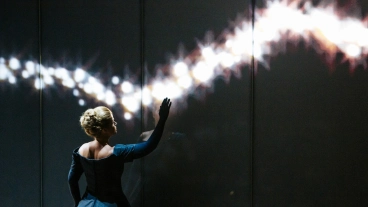
Jegyzet
Wagner-hősök nyomában
Miért nem veszi észre a naiv Siegfried az ellene szövődő ármányt, és miért kell Sentának meghalnia a bolygó hollandiért? Nézzünk egy kis Wagner-hőstipológiát a karakterek jobb megértése érdekében!
-
We wish to inform you that in the event that Müpa Budapest's underground garage and outdoor car park are operating at full capacity, it is advisable to plan for increased waiting times when you arrive. In order to avoid this, we recommend that you depart for our events in time, so that you you can find the ideal parking spot quickly and smoothly and arrive for our performance in comfort. The Müpa Budapest underground garage gates will be operated by an automatic number plate recognition system. Parking is free of charge for visitors with tickets to any of our paid performances on that given day. The detailed parking policy of Müpa Budapest is available here.

